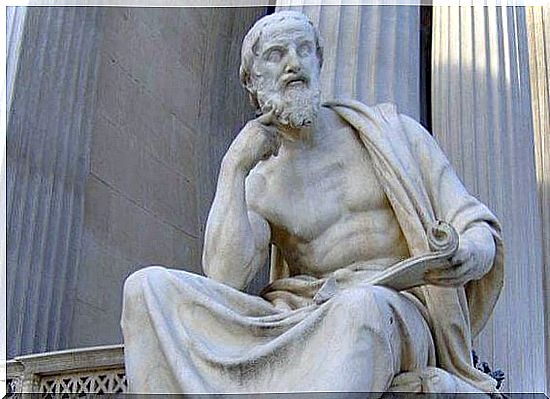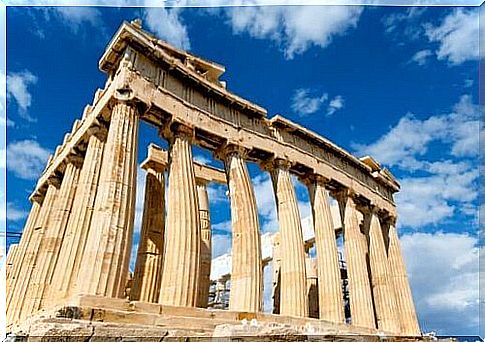Herodotus: The First Historian And Anthropologist

Herodotus of Halicarnassus, today’s Bodrum in Turkey, was a historian and geographer in ancient Greece. He lived between 484 and 425 BC. Chr. Many experts consider him the first historians and anthropologists at all.
He was the first to leave us a reasoned and structured record of human actions and events. To create this he used a variety of oral and written historical sources. Herodotus was way ahead of his time. Let’s take a closer look at his life!
Herodotus and the story
The nine books of history , his greatest work, had two goals:
- Record of the events experienced by both the Greeks and the barbarians
- Explanation of the causes of these events and their impact on Greek and Persian societies

The records made by Herodotus focused on the Greco-Persian Wars that took place between 492 and 478 BC. Between the Greeks and the Persian Empire. That was not all he covered, however, as his books deviated from this main theme in some places.
The events mentioned were written in prose and not in the usual poems. Although Homer, the narrator of the Iliad and Odyssey , clearly influenced Herodotus, he made no attempt to adapt his style to this in his own works. Nevertheless, both narrators have certain things in common: They told in the third person and used sophisticated language.
Another big difference between the epic poems and Herodotus’ historiography is the sources he used. While the muses were Homer’s main inspiration, Herodotus focused on information gathering. He strove to achieve the most accurate possible representation of the historical events.
Herodotus: the traveling historian
Herodotus traveled a lot. No wonder he wrote down everything he saw and heard on his travels. He started collecting sources early on – after all, later he couldn’t even look up what he had forgotten. His methodology included the following points:
- Finding and gathering information in places he could visit. He wrote descriptions of the geographical features of places. He also described the customs of the people he visited and their most striking peculiarities.
- When Herodotus was unable to obtain information directly, he relied on oral testimony from the inhabitants of the countries he visited.
- He also used written sources produced by epic poets and logographers.
Herodotus explained in his work how and why he gathered the information with which he described an event. Indeed, he stressed both the importance and the difficulty of using various sources to describe a historical event in order to stay as close as possible to the truth. This use of direct and indirect oral and written sources made the work of Herodotus legendary. It changed the way people wrote about their history.
The 9 books of stories
His long main work, the histories , are divided into 9 books:
- In the first book he went into the possible causes of the Greco-Persian wars. He focused on the kingdom of Lydia in the time of King Croesus. According to the historian, he (helped) triggered the conflicts between Greeks and Persians.
- The second book is about Egypt and its great miracles. The author described relevant geographic features and the most noticeable Egyptian customs. He also summed up the country’s long history.
- In the third book he discussed the reasons that prompted Cambyses II to attack Egypt and to dare to conquer. Herodotus also described the personality and military campaign of Cambyses. The book ends with his death and the rise of Darius I to the throne.
- Book 4 consists of two parts. The first is about Scythia, a Central Asian region, and the second is about Libya.
- From the fifth to the ninth book, Herodotus focused on the military conflicts between the Greeks and the Persians in the Greco-Persian Wars. The fifth book dealt with the Persian advances against the Greeks, particularly in Macedonia and Thrace. It also talked about the history, geography and culture of Sparta and Athens.
- The sixth book is about Darius’ expedition that ended with a Greek victory in marathon.
- Book 7 describes a number of dramatic battles, such as the Battle of Thermopylae.
- Finally, the eighth and ninth books describe the battles of Salamis and Plataea, respectively.

The first historian and anthropologist
Because of the methods used by Herodotus to gather information, many current historians consider him the “father of the scientific field of history”. Thanks to his descriptions of some events, we now have records of the conflicts that influenced ancient Europe and Asia.
However, experts do not only consider Herodotus to be the first historian. They also say that he was the first anthropologist because he used participatory observation, which is a fundamental characteristic of ethnography today.









